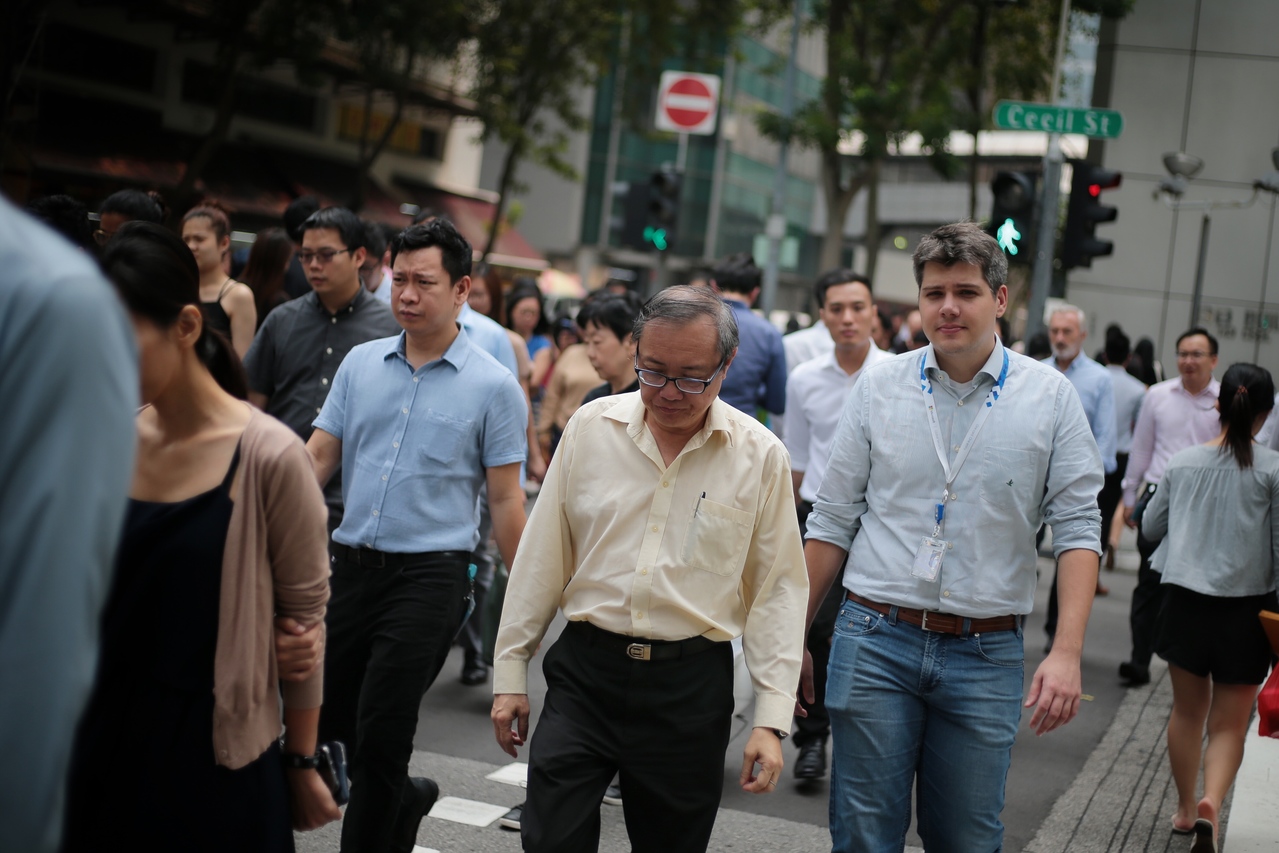Parliament: Up to $250,000 for firms raising retirement and re-employment age early; retirement age of two groups to be reviewed
Sign up now: Get ST's newsletters delivered to your inbox

The statutory retirement age will go up gradually from 62 to 65 by 2030, while that of re-employment age from 67 to 70 in the same period.
ST PHOTO: JASON QUAH
Follow topic:
SINGAPORE - Auxiliary police officers and private-sector firefighters could work longer if they wish to as their retirement age is going to be reviewed, Manpower Minister Josephine Teo said on Tuesday (March 3).
Her announcement comes a day after Home Affairs Minister K. Shanmugam said in Parliament that the retirement age for Home Affairs uniformed officers, like the police, will be increased gradually to 58 by 2030, up from 55 currently.
She also said her ministry will work with the Home Affairs Ministry as well as employers and unions on the private sector review.
The move is part of efforts to promote employment for senior workers, which include the $1.3 billion Senior Worker Support Package announced in the Budget statement last month.
The package, which will run over three years until 2022, is expected to benefit about 110,000 companies and 570,000 workers, said Mrs Teo during the debate on her ministry's budget.
Giving further details on the package, she said progressive companies that raise both their retirement and re-employment age ahead of the national schedule can receive up to $250,000 through a new Senior Worker Early Adopter Grant.
The statutory retirement age will go up gradually from 62 to 65 by 2030, while that of re-employment age from 67 to 70 in the same period.
The first scheduled increase is on July 1, 2022, when the respective ages will rise to 63 and 68.
The early adopter grant will give companies, which raise the ages by three or more years above the prevailing statutory ages, $5,000 per senior worker aged 60 and older, capped at 50 workers.
The funding is $2,500 for those who raise it by two years above the prevailing statutory ages, and $1,000 for those who raise it by a year.
Companies are also required to change their human resource policies and employment contracts, and communicate the changes to employees.
In addition, Mrs Teo said the new Part-Time Re-Employment Grant will provide up to $125,000 to companies that commit to providing part-time re-employment opportunities to eligible workers who ask for it.
This comes after the Tripartite Workgroup on Older Workers found that senior workers wanted to reduce their work intensity gradually as they approach retirement.
"They are also more prepared to remain in the workforce if they can undertake part-time work arrangements during the re-employment phase," Mrs Teo added.
Many employers, however, do not have work structures and processes to support part-time options, so the workgroup felt employers need to be encouraged to make changes, she said.
Hence, a total of $100 million has been set aside for these two grants over three years, Mrs Teo said.
The other two parts of the Senior Worker Support Package, announced earlier in the Budget statement, are a Senior Employment Credit and a Central Provident Fund (CPF) transition offset scheme.
The Senior Employment Credit provides wage offsets of up to 8 per cent to employers that hire Singaporean aged 55 and older. The amount of wages subsidised is tiered according to the workers' ages.
Overall, companies will get $660 million in the credit over two years, for 2021 and 2022.
The CPF transition offset scheme, for which $80 million has been set aside, offsets half of the increase in employer CPF contribution rates next year (2021).
They will contribute either 0.5 percentage point or one percentage point more for workers aged 55 to 70 next year, based on the worker's age.
The move is to raise gradually during this decade the CPF contribution rates of those aged 55 to 70 until those aged 60 and younger enjoy the full CPF rates.
Mrs Teo also said in response to Nominated MP Walter Theseira that besides wage subsidies, employers also request for help to ensure senior workers' skills remain relevant.
Dr Theseira had asked about the effectiveness of the Special Employment Credit, which the new Senior Employment Credit is replacing, in encouraging retention or hiring of senior workers.
Mrs Teo said that employers sometimes face resistance from workers who feel that if they are not going to be in work for much longer, it is not necessary to go for training.
"We were able to persuade the employers that well, if you gave workers the assurance...that they have a longer runway, then perhaps this could motivate them," she said.
She also highlighted the importance of peer support where older workers go for training together.
Correction note: An earlier version of this article said that the Senior Worker Early Adopter Grant will provide $5,000 per senior worker aged 60 and older for companies which raise the retirement and re-employment ages by three or more years ahead of the national schedule. It also said the funding is $2,500 for those who raise it two years early, and $1,000 for a year. This is incorrect. The article has been amended to reflect the correct criteria for determining the funding amount. We are sorry for the error.

